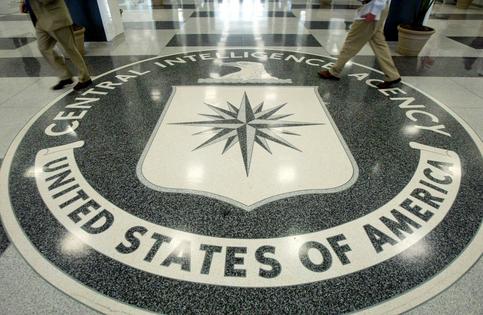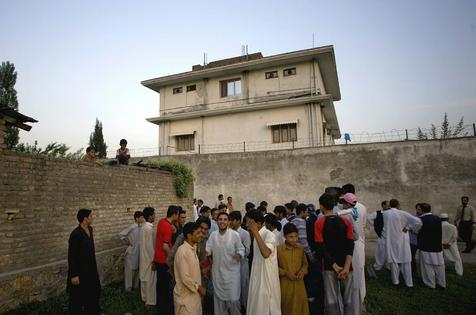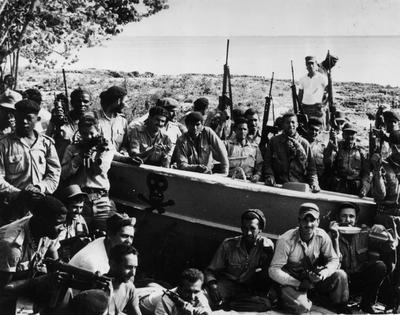How the CIA director helps the US navigate a world of spies, threats and geopolitical turbulence
Published in Political News
Today, the United States is navigating an increasingly unsettled world. The positions advising the president on national security are as important as ever. One such position, the director of the Central Intelligence Agency, is key to providing the president and Cabinet with timely intelligence and analysis.
So, what is the job of director of the CIA? What role does the director play in U.S. national security? How has the position changed over time?
The CIA director leads the government agency responsible for conducting espionage and covert action. The CIA director is a Cabinet level position but reports to the director of national intelligence.
The CIA was established by the National Security Act of 1947 as America’s premiere civilian-led foreign intelligence agency. The agency carries out espionage and covert action exclusively outside the U.S.
The CIA is organized into five directorates – analysis, operations, science and technology, digital innovation, and support – and 11 regional and topical mission centers. The number of CIA employees is classified.
Espionage activities include the use of spies tasked with collecting useful information from influential people in countries around the world. This information, referred to as human intelligence, often provides depth and context about threats posed to the U.S.
In addition to collecting intelligence, the CIA analyzes and interprets it. The agency employees thousands of expert analysts who assess the information’s implications for U.S. national security. It is this in-depth analysis that is often presented to the president and Cabinet to inform their decision-making.
Covert action is an activity intended to influence political, economic or military conditions abroad without the role of the U.S. being apparent. Such actions include programs such as disinformation campaigns, counterterrorism operations and military raids such as the one used to kill 9/11 attack organizer Osama bin Laden.
During the Cold War, from 1947 to 1991, the agency conducted numerous controversial covert actions. These included conducting coups in Iran and Guatemala and attempted or successful political assassinations in Congo, the Dominican Republic, Chile and Cuba. It also carried out highly effective programs such as the U-2 spy plane and Operation Argo, which rescued six Americans stranded in Iran after the 1979 revolution.
Effective espionage and covert action are likely to prove crucial for blunting threats that nations such as China, Russia, Iran and North Korea pose to the U.S. They will be key to monitoring the activities of these nations and enabling the director to deliver timely and valuable analysis to the president.
During the Cold War, the director of central intelligence had autonomy to conduct these covert actions with limited oversight. The position was extremely powerful at the time because the director was in charge of overseeing all U.S. intelligence activities, not just those of the CIA. This left the director of the CIA as the primary voice on intelligence matters to the president.
Since significant reform of the U.S. intelligence community in 2005 in response to the failure to prevent the 9/11 attacks, the role of the CIA director has changed. The most significant of these changes is that the CIA director no longer manages all U.S. intelligence. The reforms gave that responsibility to the more independent director of national intelligence.
The reform also saw the CIA director’s influence diminished because the position is no longer the primary intelligence adviser to the president. This has created tension between the two positions at times, with the CIA maintaining a high degree of independence from even the director of national intelligence.
In 2017, for example, President Donald Trump restored the CIA director as a formal member of the president’s Cabinet. Later, the CIA director was made a regular attendee of the National Security Council, the president’s principal forum for national security deliberations.
While there is more oversight of the CIA today from Congress and the director of national intelligence, the agency remains relatively independent in conducting espionage and covert action. These include covert actions during the Syrian civil war and during Russia’s invasion of Ukraine.
Another change has been the increased size of the intelligence community. The CIA today is only part of a much larger group of intelligence agencies. These include the Federal Bureau of Investigation, the Defense Intelligence Agency, the National Security Agency and more specialized agencies like the National Geospatial-Intelligence Agency.
In spite of this more capable and larger intelligence community, the CIA remains the premiere U.S. intelligence agency. This ensures that the CIA director will remain a key player in any presidential administration. The director possesses an immense responsibility to protect the U.S. from foreign threats.
Although the CIA director’s role has changed over time, what remains clear is its central importance to the success of U.S. national security efforts. This has become only more apparent given the increasing turbulence in world affairs.
This story is part of a series of profiles of Cabinet and high-level administration positions.
This article is republished from The Conversation, a nonprofit, independent news organization bringing you facts and trustworthy analysis to help you make sense of our complex world. It was written by: Matthew Clary, Auburn University
Read more:
How a director of national intelligence helps a president stay on top of threats from around the world
FBI director guides the agency in confronting complex international threats, investigating federal crimes and running 55 field offices
Section 702 foreign surveillance law lives on, but privacy fight continues
Matthew Clary is affiliated with the American Political Science Association (APSA), the International Studies Association (ISA), the Southern Political Science Association (SPSA), the College Board, the American Association of University Professors (AAUP), and serves as Secretary to the Board of Directors for the Southern Regional Model United Nations (SRMUN), Inc.


































































Comments